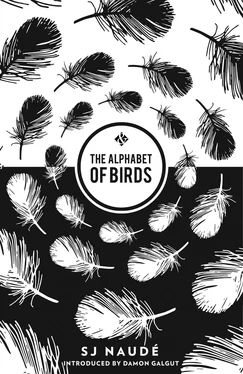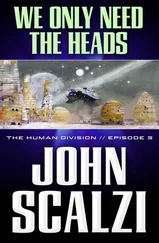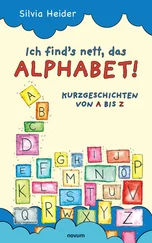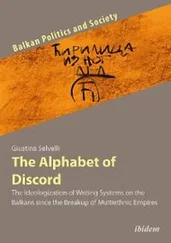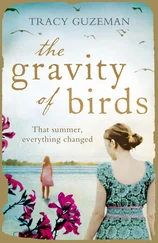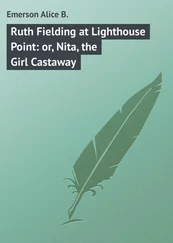At school, Tommie hardly takes notice of Christiaan, but at night he takes him on his raids in the neighbourhood. Occasionally Tommie blows up a postbox with firecrackers; here and there he steals something from a garden. One evening he makes Christiaan wait in the street, hops over a wall and, after twenty minutes, brings back a radio, a box filled with records and a fistful of cash.
Christiaan has a shiny new Christmas bicycle; Tommie still rides his old one from primary-school days, for which his legs have become too long. They pedal up the hill. Tommie’s body is swaying, his T-shirt flapping. It is almost completely dark.
When the road starts flattening near the top, Tommie is far ahead of him. The houses fall away. There are only black wattle trees and the occasional blue gum. Christiaan is pedalling as if in sand. The skin on his back is cold. He is an open target. Years ago, he recalls, there was a serial killer who hid in the hills and managed, for months, to evade the police. The Panga Man. Every now and then he would creep up on lovers in their cars and slice them up with relish.
Christiaan pedals until his lungs start burning.
At the big reservoir, Tommie is waiting for him. He drops his own bicycle next to Tommie’s. They scramble wildly up the high wire fence. He reaches the top before Tommie, but when he rolls over the razor wire, it tears his shirt and draws a burning line across his ribs.
They clamber up an iron ladder inside a concrete tube. Tommie is in front, Christiaan below him, more wary now. The clanging of feet on iron echoes around them.
They emerge at the top and walk along the edge of the reservoir’s domed roof, arms stretched out, to where they can see the city lying beneath their feet. Tommie takes off his shirt. Christiaan hesitates, then follows suit. They lie down on their backs, feet against the low edge. The concrete is still holding the afternoon’s warmth. As always, the air is high and cloudless. The city is full of engines. Tommie lights a cigarette. He inhales the smoke. Then he brings it closer, until it almost touches Christiaan’s skin. In the glow they study the bloody ridge across his ribs. He holds his breath, waits for Tommie to trace it with a finger, but Tommie grins and turns away, shooting his cigarette in a long arc above the city lights. Before he loses his courage, he reaches out for Tommie’s temple, but Tommie jumps up. He crawls towards the middle of the dome. He gets up and stands on the highest point like a statue. Then he disappears. Christiaan waits for him to return. After a long while — the concrete having cooled against his skin — he realises Tommie has gone.
When he scales the fence, more carefully this time, only Tommie’s bicycle is there in the dust. The explanation to his parents the next day is that he has given his bicycle away. He refuses to say to whom. Neither he nor Tommie ever says a word about it again.
Another evening, a few months later. The last time, so he thinks, that he will ever see Tommie. Tommie and his mother will be moving out of the city the next day. When he asks where to, Tommie says they will be joining his father on the border, where he will help him fight terrorists. They are in Tommie’s empty bedroom, among packed boxes. Tommie is lying with his back against a box, shirtless as usual, hands behind his head. He is telling Christiaan about the weapons his father has ready for him. An entire arsenal. They will show the terrorists who’s boss. While Tommie is speaking, Christiaan reaches out without looking at him. He drags a finger through the hairs in Tommie’s armpit. Tommie is quiet for a moment, then continues. The weaponry is becoming heavier, increasingly lethal. Christiaan brings his face to where his finger has just been, breathing in Tommie’s scent. He stays like that for a moment, until Tommie gets up and pulls a wooden gun from a box. ‘My dad has an Uzi like this,’ he says, ‘but much bigger; a real one.’
‘I immediately recognised you,’ Tom says, ‘when we arrived here this evening.’
‘Our youth is a no-man’s-land,’ Chris says, and looks away. How impossible, he thinks, to return to it. All that remains is a void to be filled with the wonders of the world.
For a while neither of them says anything. Tom takes his hand off Chris’s neck. ‘Your feet must be cold now,’ Tom says. ‘There’s soup inside.’
He turns to the balcony door. It sticks when he pulls it, then yields. Dry leaves shift away like snow. Behind the shutters is a wall.
‘Bricked up,’ Chris comments. ‘Back along the ledge it is.’
When he looks back to where he left his shoes by the tree, he is convinced he can see a face peeking around the corner. The Northern European from earlier, he thinks. Yes, he is sure it is him: the man with the impeded body and the disobedient bones. He points towards the face, but Tom can’t see anything.
They have been gone longer than Chris thought. Most guests have left. After another half-hour only Tom and Chris remain. Fred observes them from where she is carrying away plates. She decides they have to stay over.
‘Too late,’ she says, ‘to order a taxi out here in the sticks.’
She lends the two men fresh trousers and shirts — Fred’s for Chris and Tita’s for Tom. Not a word is spoken about the event around the piano earlier. There is no trace of the earlier tension.
‘Come and drink coffee here in our room!’ Fred is leaning her head over the banister and calling down to the men. She is carrying a tray with a silver coffee pot.
Now Fred is sitting on the bed with her hands clasped around her shins, her face scrunched into a smile. Her neck is pulled into her shoulders and smoke is weaving slowly upwards from the joint between her fingers. A tiny coal drops onto the sheet and burns right through. The sweet smoke enters Chris’s nostrils and the hollows of his skull.
Fred’s shirt is taut over Chris’s shoulders and the top button of his trousers won’t close. Tita’s shirt, on the other hand, is loose on Tom; his trousers seem quite roomy.
Fred notices the burn on the sheet. She lifts the sheet before her, the hole over her eye.
‘What are you seeing through the ash?’ Chris wants to know.
‘The battered ones,’ she says, and sips some coffee. ‘The walking wounded left in the aftermath.’
‘The aftermath? Of what?’
She does not answer. Tom smiles raunchily at Chris. An arm appears from behind the sheet and offers the joint. Chris takes a drag, then Tom, then Tita. Fred pulls the sheet around her face so that it tightens around her features. The hole moves over her mouth again. The joint is passed to her; she takes a drag. A trickle of smoke emerges from the black hole.
Chris turns to Tita: ‘Tom wanted to know more about your research. Tell him about noise, about the hellishly noisy future.’
Tom leans towards Chris and Tita. His borrowed shirt tightens over his shoulders.
‘Yes,’ she says, ‘that’s where it starts. The Futurists expected a deafeningly noisy future, and were preparing to welcome it. They, in fact, wanted to invite it, to storm and destroy the traditional concert hall — the so-called “hospital of anaemic sound”. Russolo armed himself with an arsenal of self-manufactured instruments. His Intonarumori — acoustic noise machines. Wooden boxes with a loudspeaker and a crank or electric button. With a turn of the crank or the press of a button one could make noise, and then modulate the tone with a lever.’
‘Explain how it all worked,’ Chris says.
‘Well, inside it has — or had — a wheel that caused a string made of cat intestine to vibrate. The lever adjusted the tension. Glissandi or individual notes would then be led to a drum adjoining the loudspeaker—’
Читать дальше
